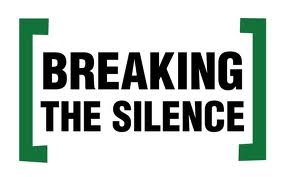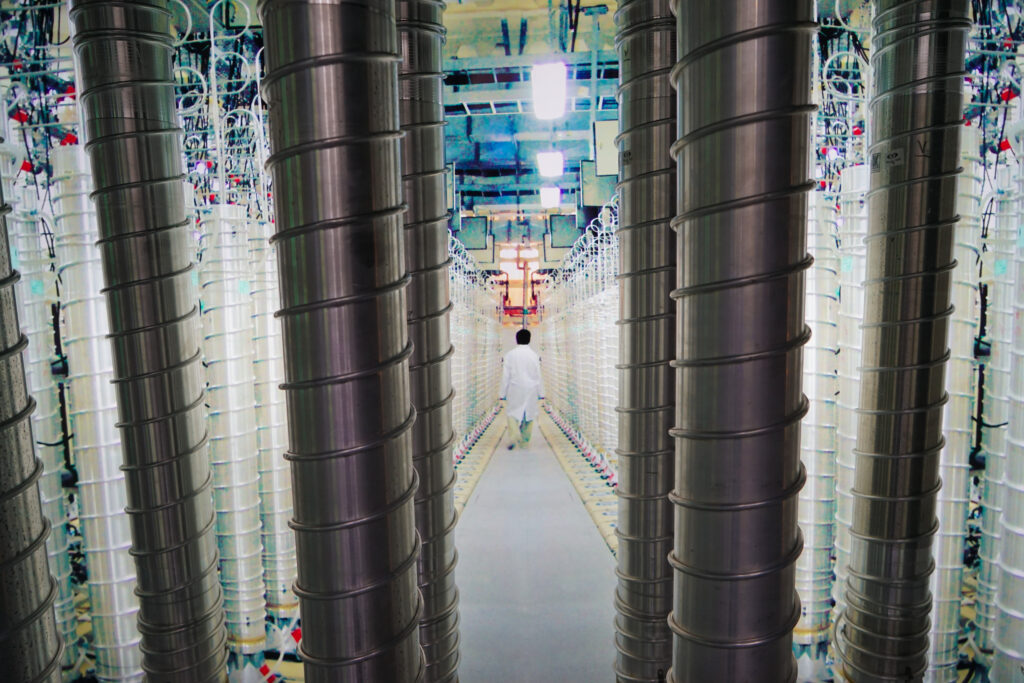UPDATES
A reality check on “Breaking the Silence”
March 28, 2014 | Sharyn Mittelman

Last month AIJAC responded to the ABC Four Corner’s Report ‘Stone Cold Justice’ which alleged Israeli mistreatment of Palestinian children. AIJAC’s policy analysts Jamie Hyams and Ahron Shapiro suggested there were a number of misleading statements made in the ABC program, and critiqued some of its sources used uncritically – including reliance on the Israeli NGO ‘Breaking the Silence’ (BTS). In particular they noted that BTS is:
” …a group that occasionally puts out reports of anonymous testimony from Israeli soldiers alleging misdeeds that they took part in, saw, or heard about. The fact that the group’s members are almost all anonymous means that the events they describe generally can’t be verified, let alone acted upon, and the number of members the group has is also an unverified claim. In addition, as AIJAC’s Ahron Shapiro noted in August 2012, much of the testimony is of instances that may have made the soldiers feel uncomfortable, but hardly amounts to human rights abuses, while the fact that the group is financially backed from foreign sources, fails to take its allegations through Israel’s justice system and publishes the bulk of its material in English, rather than Hebrew, suggests they are more interested in damaging Israel’s reputation than in improving human rights.”
In response, Foreign Relations Director of BTS Yehuda Shaul wrote to the news website Jwire complaining that:
“The stories we tell are not easy to hear, we understand that. But the choice our audience has to make is whether to sincerely listen to us, as veterans, or to begin mudslinging while turning a blind eye to the reality. It saddens me that Jamie Hyams and Ahron Shapiro of the Australia/Israel Jewish Affairs Council (AIJAC) have chosen the latter by slandering our role in ABC’s ‘Four Corners’ program about children’s rights in the Occupied Territories…”
Shaul accused Hyams and Shapiro of simply repeating “smears” from what he called the “extremist right-wing organization, NGO Monitor”.
AIJAC’s Hyams and Shapiro responded to Shaul’s article, as did Gerald Steinberg of NGO Monitor. The former stated in part:
“As AIJAC has said repeatedly, like all militaries, the IDF is neither infallible nor beyond reproach, and all allegations of wrongdoing in its ranks must be investigated.
Through its fundamentally flawed methodology and questionable actions, however, ‘Breaking the Silence’ appears to show little interest in contributing constructively to the process of safeguarding the IDF moral code it claims to uphold. Rather, its thinly veiled, political goal appears to be geared primarily towards increasing domestic and foreign pressure on Israel to implement an immediate and unconditional withdrawal of IDF forces and expulsion of Israeli civilians from the West Bank – regardless of the consequences to Israel’s security.”
It is interesting to note that nearly all of the criticisms of BTS made by AIJAC and NGO Monitor were validated by a British journalist based on his own personal experiences with the group, and with no obvious agenda.
Jake Wallis Simons works as a feature writer for Britain’s Telegraph newspaper, previously worked for the BBC, is a documentary filmaker and has also written three novels. He participated in tour with BTS while carrying out interviews and research for ‘Meet the Settlers’, an in-depth Telegraph multimedia feature about Israeli settlements. In an article published in the UK Telegraph titled “Why are European powers (and Oxfam) funding a radical Israel Group?”, Simons documents his experience with BTS:
“I was looking forward to interviewing members of Breaking the Silence. The group had been highly recommended to me by various people, including a British diplomat… I liked all the members personally, and at first found them to be sincere in their beliefs. But when the interviews began, something didn’t feel right.
For one thing, the majority of the testimonies seemed to reflect the roughness of the military rather than any human rights abuse. The indignity of checkpoints; the intrusion of house-to-house searches; the unpleasantness of curfews. All of this stuff is awful, but only a small percentage of it appeared to warrant court martial…
For now, my point is this: I couldn’t shake the feeling that Breaking the Silence was milking it.
It was only a hunch at first. But later, the bias of the organisation became clearer… It was with some surprise that I learned that 45 per cent of [the organisation’s budget] is donated by European countries, including Norway and Spain, and the European Union. Other donors include UNICEF, Christian Aid and Oxfam GB. To me this seemed potentially problematic.
As is the case in all democracies, the IDF is an organ of the state, not a political decision-maker. If the goal of Breaking the Silence was simply to clean up the Israeli military, it wouldn’t be such a problem. Instead, the aim is to ‘end the occupation’, and on this basis it secured its funding.
It appeared, therefore, that these former soldiers, some of whom draw salaries from Breaking the Silence, were motivated by financial and political concerns to further a pro-Palestinian agenda. They weren’t merely telling the truth about their experiences. They were under pressure to perform. Indeed, I later discovered that there have been many allegations in the past that members of the organisation either fabricated or exaggerated their testimonies.
The matter became more unsettling when one of Breaking the Silence’s former soldiers accompanied me to Hebron… This is the only Palestinian city to have a Jewish settlement embedded in its centre, and as such is the most acrimonious and violent place in the region…
We set up our video camera outside an army base in the Israeli sector of Hebron, and I began to interview the former soldier from Breaking the Silence. He was talking about his army service, and came out with the line, ‘the first time I ever met a Palestinian was when I entered his house in the middle of the night’. While he was speaking a car drove by behind him, drowning out his words. I said: ‘Just give me it one more time about how… the first time you ever met a Palestinian was when you kicked down his door in the middle of the night’. This was my mistake; he hadn’t said that he kicked down anything.
He duly repeated it. This time, however, he took my lead and changed his account from ‘entered his house in the middle of the night’ to ‘kicked down his door in the middle of the night’. On the surface it may seem like a small detail. But when we played back the tape I found the ease with which he exaggerated his story very troubling. We didn’t use the interview.”
Simons also validated another point Hyams and Shapiro made about “Stone Cold Justice” – namely that focussing on the situation in Hebron as typical of the reality in the West Bank is misleading when it is in fact unique and particularly volatile and problematic compared to other areas housing settlers. Simons wrote:
“Most worryingly of all, Breaking the Silence focuses almost exclusively on Hebron, presenting it as typical. Several times a month it ships foreign diplomats, officials and ordinary folk to this unhappy place, showing them the grim military infrastructure and providing testimony about the abuses carried out by settlers and soldiers… This one city, they say, is a ‘microcosm of occupation’.
Now, there is no doubt that Hebron is a highly disturbing place, or that violence takes place there on a regular basis. But all the anti-settlement organisations I spoke to, including Peace Now, B’Tselem and Rabbis for Human Rights, acknowledged that Hebron is the exception rather than the rule. Most settlements are far more peaceful and less abusive. A few even have supermarkets where Arabs and Jews shop side-by-side.
This isn’t to justify the existence of the settlements, or to soften the debate about their legality. It is to illustrate the simple point that Breaking the Silence appears to be sexing up the harshness of the Israeli presence on the West Bank by focussing only on its very worst manifestation. That is to say, it is warping the terms of the debate. And it is funded largely by Europe, and by extension the UK.
Whatever your view on the Israeli-Palestinian conflict, it is surely self-evident that it must be based on the truth of the situation, not a biased and partial interpretation of it.”
In any country, it is of course important that veterans have a vehicle to discuss their personal experiences of military service, debate security policy and expose and explore any serious abuses they witnessed. However, problems arise when individual experiences of service are being selectively used to achieve a political purpose. As journalist Amos Harel wrote in the left-leaning Israeli daily Haaretz back in 2009,
“Breaking the Silence… has a clear political agenda, and can no longer be classed as a ‘human rights organization.’ Any organization whose website includes the claim by members to expose the ‘corruption which permeates the military system’ is not a neutral observer. The organization has a clear agenda: to expose the consequences of IDF troops serving in the West Bank and Gaza. This seems more of interest to its members than seeking justice for specific injustices.”
Like Simons, Harel can hardly be accused of some sort of “right-wing” vendetta again the organisation. The point is not that BTS should be somehow silenced, something Shaul ridiculously accused AIJAC of trying to do. It is that it is an organisation whose goals are both political and arguably radical (for example, it does not appear to seek a two-state peace deal so much as Israel’s withdrawal from the West Bank at all costs and immediately), is in large part paid for by foreign governments and NGOs, it represents a comparatively small proportion of ex-IDF soldiers, and some of its claims are questionable. In Simon’s words, it appears to be “milking” some of the material it gathers in pursuit of its larger political goals. Both journalists and others relying on its pronouncements should therefore be treating those pronouncements accordingly.
Sharyn Mittelman
Tags: Israel





